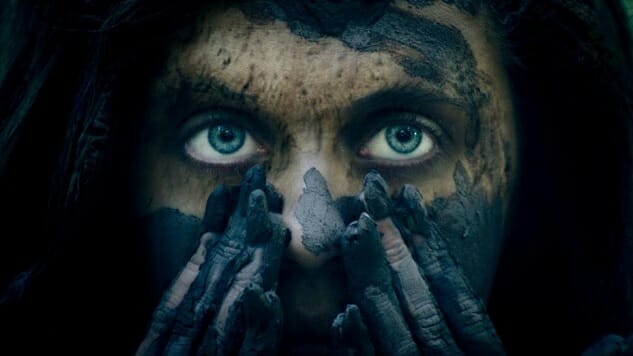Wildling

Fritz Böhm’s Wildling plays like a solid first draft, creative, atmospheric and just familiar enough to make its creative atmosphere stand out. Combine details and themes from movies like The Howling, Raw and Ginger Snaps, buttress them with a bit of YA-level romance, and you have the fundamentals of Böhm’s story down. It’s his fondness for folklore’s dreadful magic that gives Wildling an identity separate from Böhm’s influences.
As good folklore tends to, the film suffuses fantasy with darkness, spinning mythological origins for an extinct race of hirsute wood-dwelling monsters in the wilds of rural America. The person doing most of the spinning here is Brad Dourif, playing a man only referred to as “Daddy” by his daughter, Anna. Daddy puts Anna to bed at night telling her about those monsters, the wildlings, warning her to stay indoors lest they get their claws on her. As a precautionary measure, he ensures she stays in bed at night by electrifying the handle on her bedroom door. Tucking your kid in for the evening is good parenting. Shocking them for their protection is bad parenting. Daddy isn’t quite who we think he is, and Anna isn’t what she seems, either.
-

-

-

-

-

-

-

-

-

-

-

-

-

-

-

-

-

-

-

-

-

-

-

-

-

-

-

-

-

-

-

-

-

-

-

-

-

-

-

-








































